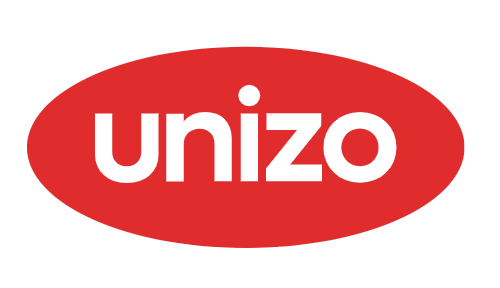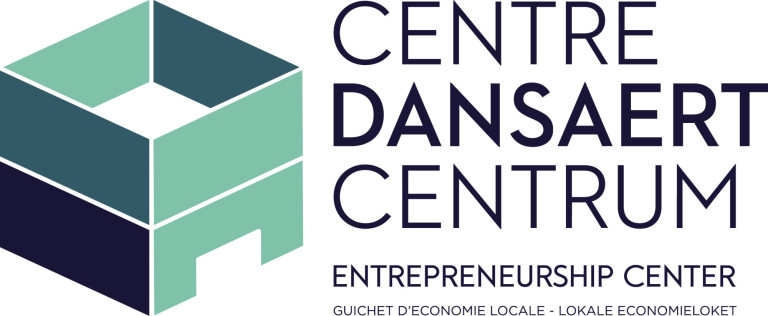The taste for entrepreneurship can strike at any age. More and more young people are launching and concretising entrepreneurial projects during their time as a student. Student-entrepreneurs are driven by the desire to be “actors”. Yet how do you take the first step when you are still attending university? Where do you find the keys and motivation? What are the pitfalls to avoid? What paperwork needs to be completed? Here is everything that you need to know.
1. To undertake, what does it mean?
The Larousse dictionary entry for undertake is “to start to execute an action, generally a long or complex one”. In reality, a lot more is involved in entrepreneurship. It’s a journey, with a starting point and a destination, via the means of a business. This includes an initial step, several phases and a goal, but with unknown elements along the way. It demands personal initiative, action and perseverance, and working step by step towards a “destination”, while being ready to make changes on the journey. Finally, it requires implementing a sequence of actions, teamwork and facing up to fears and stepping out of your comfort zone. What a programme!
At stake? Even if your “student” business doesn’t take off, you will still reap important rewards. Just like with a journey, it’s not the destination that counts, but the pathway taken and the detours made. This is what awaits you in entrepreneurship: discovery, realising your potential, learning, experiences, revealing talents, professional independence, etc. – an invaluable toolkit for the future. It’s a window into your future and many open doors.
The entrepreneurial ecosystem has never been so favourable, despite the current situation. Teaching initiatives are flourishing in post-secondary schools and universities; events are multiplying; there are countless communities and a wide range of relevant offers of support; innovative and collaborative spaces are popping up like mushrooms and digital tools are available to you, etc.
2. What are the key attributes to become a student-entrepreneur?
What do Richard Branson (Virgin), Ingvar Kamprad (IKEA), Bill Gates (Microsoft) and Steve Jobs (Apple) have in common? And what about - closer to home - Tanguy Goretti (Cowboy), Emna Everard (Kazidomi) or Louis-Philippe Broze (Spentys)? They all launched their first company before celebrating their 25th birthday. So why not you?
Starting an entrepreneurial project during your studies is a unique opportunity:
- A test bed: you have got the time to make mistakes, without being paralysed by the pressure to succeed. Students have an advantage: they have the room needed to test, fail and start again;
- A machine to fulfil your dreams: you can implement a project that you have your heart set on and put it to the test. It’s the opportunity to invest in your passions.
- An apprenticeship: whatever the outcome of your project is, you will always be rewarded! With experience, knowledge, skills and new connections, etc.;
- An impact: creating your own company is also a way of adding your brick towards building tomorrow’s world. The chance to be an actor, to engage and contribute to building the future;
- A company, your very own: finally, your initiative can lead to a truly passionate and independent project, of which you are your own boss.
We often read that an entrepreneur must be passionate and possess the skills and knowledge required to make their project happen. But as a student-entrepreneur, you have many other assets.
- You are young: this may appear insignificant, but it means that you are still curious and innovative. These entrepreneurial qualities, were superbly summed up by Mark Twain: “They didn’t know that it was impossible so they did it”;
- You enjoy a lot of freedom: this allows you to choose your project, methods, partners, and also to stop or change course if it no longer suits you. This freedom often decreases with age;
- You bring a fresh point of view: you have the ability to think "differently", out of the box, and thus to innovate. Audacity is another virtue that you can combine with your youth;
- You can take risks: this allows you to follow your creativity and test the most original ideas, as you still don’t have an obligation to achieve results or generate a financial return;
- You have access to tools and knowledge: this is one of the benefits of our era. Technology and knowledge are only a few clicks away. And let’s not forget that you often have the ability to understand and master them both.
3. What do you need?
As a student, you have real keys to successfully implement your project, yet entrepreneurship is not without unknown risks and obstacles. Although there are exceptions, the following elements will appear on your journey.
Behind the idea will be the “problem”.
Many entrepreneurs never start up, because they can't find a unique or revolutionary idea. They think that everything has already been invented. Should you drop it all? No, on the contrary! Rather than seeking out originality at any cost, focus on the problem to be solved.
What’s the goal? To put yourself in your future client’s shoes: how can you meet their needs? So, being enterprising without an idea is entirely possible! ! Also keep in mind the words of the American author Napoleon Hill: “If you cannot do great things, do small things in a great way”.
When you start “looking for a problem to solve”, focus on the areas that you enjoy and that are close to you: a sport that you play, a cultural activity, a daily task, etc. By starting out with an area that you already master, you will increase your chances of identifying what is “missing”, causing an issue or could be improved. What about when you can’t find a problem? Some websites are an infinite resource of leads to try out and questions to explore.
Entrepreneurship During Your Studies and Embracing the Economic Transition
Launching your entrepreneurial project during your studies is a great challenge and also an opportunity to develop an initiative rooted in social and environmental values. Circular economy is gaining momentum in Brussels, and many companies can inspire you! See examples on www.circlemade.brussels.
A road map
You aren’t obliged to have an ultra-detailed business plan right from the start. However, you do need a rough idea of where you are heading: a plan is therefore still recommended. It will allow you to structure the project, both for yourself and to present it to others. You can build it around the following elements:
- An explanation of the “problem” that you intend to solve as well as your added-value;
- A simple description of how the business will run, as well as of the products or services;
- A portrait of your target client and the channels used to reach them;
- A list of the resources required (equipment, funds, staff, etc.);
- An inventory of fixed and variable start-up costs;
- A breakdown of sources of income (prices, quantity, etc.)
Some sound advice
Other entrepreneurs took this road before you, so it is useful to pay attention and listen to their experiences.
- Be ready to listen to others, and also to yourself. This balance is not straightforward, yet is essential. Some advice can stop you from hitting a wall, but you must also have confidence in yourself and not let yourself be discouraged by defeatist remarks;
- Self-confidence. It’s obviously easier to write about than to do, but confidence can also be worked on. Avoid excessively comparing yourself with others, and never stop inspiring yourself. Again, it's another fine balance to strike;
- Surround yourself with the right people. This is a common recommendation, that is also very important. Have as many people as possible at your side that you can learn from and progress with on a professional and personal front: your partner, team, teachers, mentor, accountant, bank manager, etc.
- Do not fall in love with your plan. Your company is your “baby”, but an entrepreneur must remain open-minded and allow their initial project to evolve. Without selling out, you should constantly test, listen to feedback, improve and ….start again;
- Mistakes can make you stronger. Have you already heard this one too? For what it’s worth, it’s true. An entrepreneurial project is a long road, made up of successes and difficulties. As Winston Churchill said: “Success consists of going from failure to failure without loss of enthusiasm”. Hold tight!
4. How can you take advantage of the official status?
In the past, students who wanted to attempt an entrepreneurial adventure didn’t have an actual framework to do so. Due to the status of student-workers, limited to 475 hours per year, students had no other choice than to register for “self-employed secondary employment”, which was not really tailored to their situation.
The creation of the “student-entrepreneur” status in 2017 met the expectations and needs of budding entrepreneurs and their families, notably thanks to social security and tax benefits. Here is a brief overview of this particular status.
Who is covered by the student-entrepreneur status?
To benefit from this status, you must simultaneously:
- Be aged between 18 to 25 years old;
- Be registered as a full-time student in a teaching establishment in Belgium or abroad for the school or academic year.
- the diploma undertaken must be recognised by a competent Belgian authority;
- your curriculum must be worth at least 27 credits per year or 17 hours of lessons per week.
- Regularly attend classes or take exams, except if your university or post-secondary school is supporting your entrepreneurial project;
- Have a professional self-employed activity.
What is the impact of a student-entrepreneur status?
A ) Social Security implications
Like most self-employed workers, you must pay social security contributions. These payments will entitle you to essential rights, such as sick pay and work incapacity indemnity, building up a pension, etc. The sums to pay will depend on your turnover, but, when you start out, you will not initially know your annual income. You must therefore plan for three specific scenarios:
- No social security contributions
This applies if you expecting annual income below 8.204,5 € (2023 income). This is a decent benefit for your project start up. - A provisional, “reduced” contribution of 96,67 € per quarter.
When your forecasted income reaches between 8.204,59 € and 16.409,20 € per year (2023 income). However, be aware that when your actual income is known, this amount will be adjusted (up to 420,48 €) and you must pay any outstanding balances; - A provisional “standard” contribution of 873,77 EUR per quarter
If your forecasted income will be equal or above 16.409,20 € per year (2023 income), you will be considered a “self-employed main activity”.
Also on the same theme, the social security contribution scenarios above have a distinct impact on other important areas:
- a) For no social security contribution or a “reduced” contribution
- You will not be entitled to sick pay, work incapacity, invalidity and maternity cover, or a pension provision;
- Your parents can continue to cover you with regard to the reimbursement of healthcare costs;
- Your parents can continue to receive child benefits, except if you work more than 240 hours per quarter. You will be required to make a sworn declaration to confirm your hours/income (when you pay the “reduced” contributions);
- b) Provisional “self-employed main activity” contributions
- You will be entitled to the same full rights as any other “self-employed main activity” worker: healthcare cost reimbursement, work incapacity, invalidity and maternity cover, child benefits, etc.;
- Your parents can no longer cover your healthcare costs and they will no longer receive child benefits, because it is assumed that your business activity has exceeded the 240 hours per quarter threshold.
b) Tax implications
You must pay income tax like everybody else. However, once again, the student-entrepreneur status offers an advantage. Your net income (2023 period) under the 10.160 € threshold is exempt. This means that you will only start paying tax above this amount.
What you earn above the tax-free amount of 10.160 € is taxed according to the 'increasing personal income tax rates'.
|
10.160 € to 15.200 € |
25% |
|
15.200 € to 26.830 € |
40% |
|
26.830 € to 46.440 € |
45% |
|
Above 46.440 € |
50% |
Note that you will have to make a tax declaration in your own name. It is not compulsory to have a business bank account, but it can be quite practical.
Still dependent on your parents?
In this case, your parents' tax can be influenced by your income as a self-employed person. That is why the status of student-entrepreneur is aimed at limiting this impact. Your parents are entitled to a higher exemption percentage.
- If they are married or legally cohabiting, your annual net income of up to 3.490 € (income 2022) is not taken into account in their tax return;
- If your parent is single, the exempted part increases to 5.040 € (or 6.400 € if you are disabled).
Also:
- your income as a job student/student-self-employed will be added together. You should therefore make sure that you do not exceed the limit above which you will no longer be dependent on your parents.
- any income from dual programs will never be included in your parents' tax return
5. What formalities are required to take the first step?
Do you feel ready to start? Like all self-employed people, you must comply with various obligations, even as a student-entrepreneur, such as:
Opening a bank account
This current account, separate from your personal finances, will enable you to make payments and to bank income from your business activities.
Register with an accredited "guichet d’entreprises" [Business Counter]
This is an essential step, where you can register your company with the Banque-Carrefour des Entreprises (BCE) [central trade register], obtain a company number and activate it (if applicable to you) as a VAT number.
To fulfil its role, an accredited Business Counter will ask you for various documents, for example a certificate of authorisation attesting to your right to exercise the profession for certain regulated sectors (hospitality, personal care, etc.).
Register with a social security office
While the accredited Business Counter looks after everything to do with your company, the social security office will take care of matters relating to your status, particularly your social security contribution payments. Therefore, registration is mandatory, but, the good news is that often one department covers both (you might just have to go down a floor).
The social security office will also ask you to supply documents and you must inform it of any changes in your situation (reduction in the number of credits, change of establishment, end of studies, etc.):
- Proof of registration with an educational establishment in Belgium or abroad, giving access to a diploma recognised in Belgium;
- A sworn declaration attesting that you regularly attend classes.
6. Are you ready to take flight?
Brussels offers you a series of initiatives and organisations to support your student-entrepreneur pathway: to structure your project, create links or help you with different obligations related to your status. Here are a few examples:
- Young Entrepreneurs of Tomorrow (YET)
This is the regional platform for young entrepreneurs in Brussels. Go to the YET website or follow its Facebook page for all information on awareness raising, activities, projects, events, competitions and awards. - Boost your project
This is the incubator for young people in Brussels. It was launched in 2017 by the Brussels Region, and is aimed at young people aged between 18 and 30 years old. It is an entrepreneurial pathway for project start-ups, awareness raising workshops for sustainable entrepreneurship as well as business networking events. - Les jeunes entreprises [Young enterprises]
This association offers several programmes (Young enterprise project, Innovation camp, etc.) to develop the entrepreneurial capabilities of young people aged up to 25.
Several universities and post-secondary schools have also created an internal student-entrepreneur status. This can take several forms, but always with the same objective: to stimulate the enterprising spirit of pupils and to get their foot in the door, thanks to a “supportive” framework.
- EPHEC Enterprise for Brussels, in partnership with the Job Yourself cooperative, offers a safety net to initiate the launch of an entrepreneurial project;
- IHECS-PRENEURS in partnership with Groupe One, offers a training programme and a support scheme run by professional coaches, up until the future creation of a company;
- StartLab.brussels (VUB+ULB) helps students and young graduates in Brussels to set up their company;
- Erasmus Hogeschool Brussel, located in the Dutch-speaking community, it has also implemented a dedicated academic status that allows for setting up a programme to facilitate the start up or development of a company.
7. You are finishing your studies, what next?
As long as you meet the conditions above, you can retain your student-entrepreneur status until the third quarter of your graduation year.
If you continue to study (under the conditions of the status), you must therefore go to your local social security office and provide:
- Confirmation of attending classes, provided by the educational establishment, or, at the least, a copy of results;
- Proof of a new certificate of registration.
Are you stopping your studies early or graduating? In this case, you will lose the right to the student-entrepreneur status. However, it doesn’t mean that your entrepreneurial project is over. On the contrary, you can pursue your business activities with a “standard” self-employed main activity status.
Do you have any other questions to set yourself up as a self-employed?
Also consult the chapter "Before starting a business" on this website or contact one of our advisors at via mail or call 1819.
Who can help me ?




